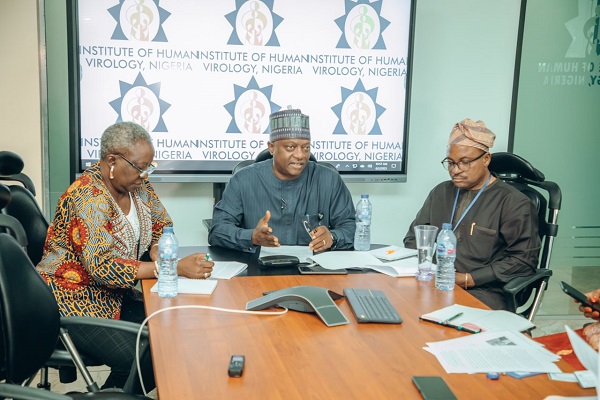News Investigators/ The International Research Centre of Excellence (IRCE) at the Institute of Human Virology Nigeria (IHVN), will host its third annual scientific symposium on Sept. 8 and 9, 2025.
Alash’le Abimiku, Executive Director of IRCE, disclosed this on Thursday in Abuja, noting that the event would focus on addressing viral threats through research and public health response.
Prof. Abimiku said that the symposium, themed, “Combating Viral Threats through Public Health Response and Research”, would feature plenary and roundtable sessions alongside research presentations that highlight Nigeria’s pressing health challenges.
She said that the two-day event in Abuja would bring together scientists, researchers, policymakers, healthcare providers, and students from within and outside Nigeria.
She said that they would share knowledge and explore innovative approaches to combating diseases such as Lassa fever, Mpox, Hepatitis and emerging threats like dengue fever.
Patrick Dakum, IHVN Chief Executive Officer, said that the timeliness of the symposium, noting that Nigeria continues to grapple with HIV, the aftermath of COVID-19 and the risk of new and re-emerging viral diseases.
Mr Dakum emphasised that sustained research and surveillance were crucial to enhancing the nation’s preparedness for public health emergencies.
Also speaking, Charles Mensah, IHVN’s Chief Operating Officer and Managing Director, urged broad participation, stating that the lessons from the symposium would not only advance scientific knowledge but also strengthen Nigeria’s health system.
Mr Mensah said that registration and abstract submissions for the symposium were open at www.ihvn-irce.org and www.ihvnigeria.org.
The News Agency of Nigeria (NAN), reports that since 2023, IRCE has convened annual symposiums focused on critical health issues, including research in sickle cell disease, cancer, and local health challenges.
The centre, established to foster public-private partnerships, is committed to excellence in research, capacity building and collaboration with government, healthcare providers and communities across West Africa.
NAN


